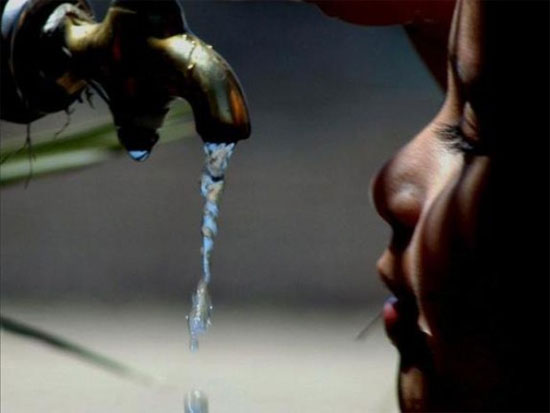Most countries in Asia-Pacific will suffer from water shortages
A recent joint study by the Asian Development Bank (ADB) and the Asia-Pacific Regional Water Forum (APWF) shows that more than 75% of countries in this region are experiencing a serious shortage of water. Importantly, many of them face imminent water crisis unless they immediately implement measures to improve water resource management.
>>>Vietnamese groundwater resources decline
Bindu Lohani, ADB Vice President for Knowledge Management and Sustainable Development, said that although the Asia-Pacific region has become an economic power, the alarming problem is that no country is broadcasting. Any region in the region can be considered " water security," so countries must urgently improve water resource management through a powerful leadership approach and innovative policy making.

Water shortages will occur in Asia-Pacific countries
He said that the 2013 Water Development Prospects study, published the first comprehensive and quantitative analysis of water security on a country-by-region basis. The study examines all levels of water security, from household level to water-related disasters, and uses indicators and ladder systems to rank each country 's progress in 49 countries are evaluated.
Research shows that 37 countries are developing in the region or have low levels of water security or are just starting to participate in the crucial task of improving water security, while 12 other countries have established systems. infrastructure and water resource management. However, no country in the region has shown that it has reached the highest level of water security.
South Asia and some parts of Central and West Asia are in the worst situation, with water in rivers being very stressful. Many Pacific islands also suffer from a lack of clean water and sanitation, and are more vulnerable to natural disasters.
In contrast, South Asia, which has the highest frequency of hazards in the region, is better off due to high levels of investment in natural disaster prevention. However, urban water security is still weak in many cities and towns.
The study highlights two harsh facts, which are increased inequality in access to clean water and sanitation, and the increasing instability of rivers; At the same time, measures can be applied to improve water security to reduce the increasing pressure from population explosion, urbanization, environmental pollution, excessive groundwater extraction and gas change. post and other factors.
The importance of more useful use of water, including recycling of used water, increasing investment in sanitation, encouraging food producers and energy users to use water more efficiently and impose Moreover, regulations on groundwater use, upgrading of irrigation services, strengthening river basin management, mobilizing more private sector investment to clean rivers and improve risk management Natural disasters, all necessary for a safe water future, are also mentioned.
- Micro-STAR: Common satellite of Asia-Pacific
- Asia is about to face the water crisis
- Diets change the demand for freshwater in Asia
- East Asia and the Pacific against hepatitis B
- The island nations in the Pacific lack serious freshwater
- Vietnam may suffer a bad rainy season
- Start the 5th APICTA competition
- Asia-Pacific seized ... 5 million pirated CDs
- Asia faces temperature
- Asian cities continued to suffer disaster
- Water shortage: Global problem
- The Pacific island nation may disappear because of climate change
 Is the magnetic North Pole shift dangerous to humanity?
Is the magnetic North Pole shift dangerous to humanity? Washington legalizes the recycling of human bodies into fertilizer
Washington legalizes the recycling of human bodies into fertilizer Lightning stone - the mysterious guest
Lightning stone - the mysterious guest Stunned by the mysterious sunset, strange appearance
Stunned by the mysterious sunset, strange appearance